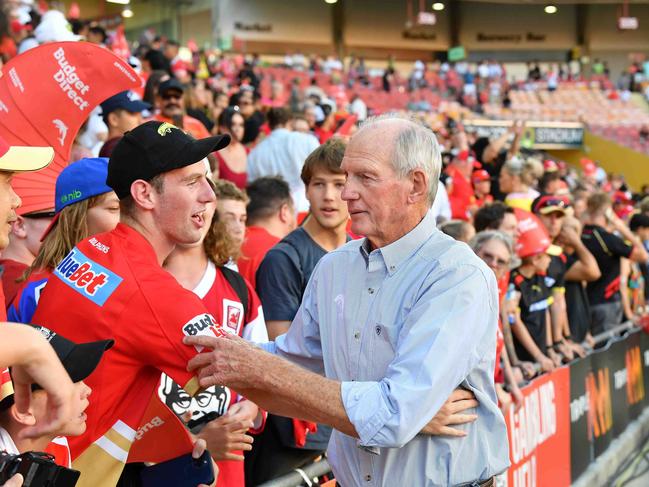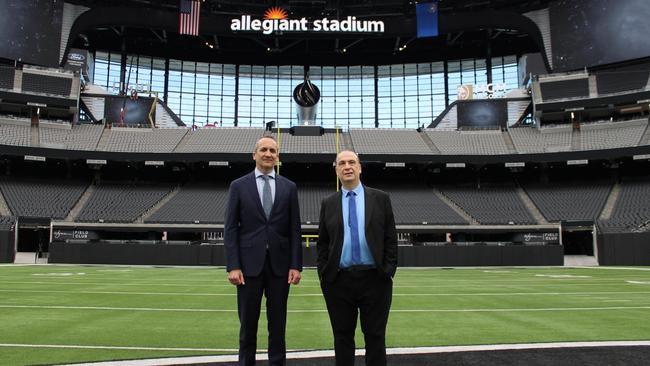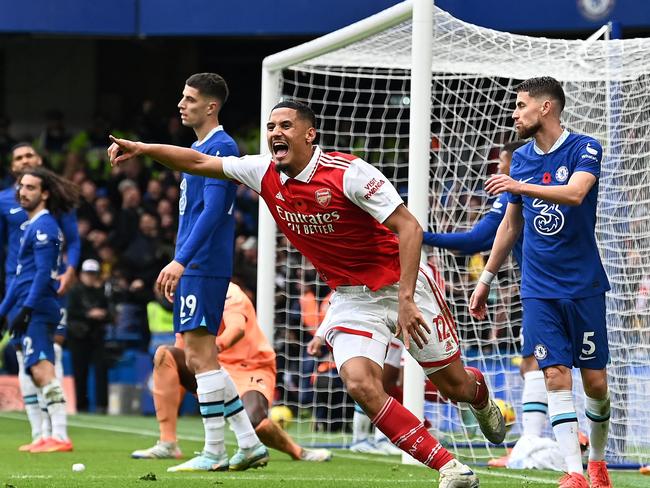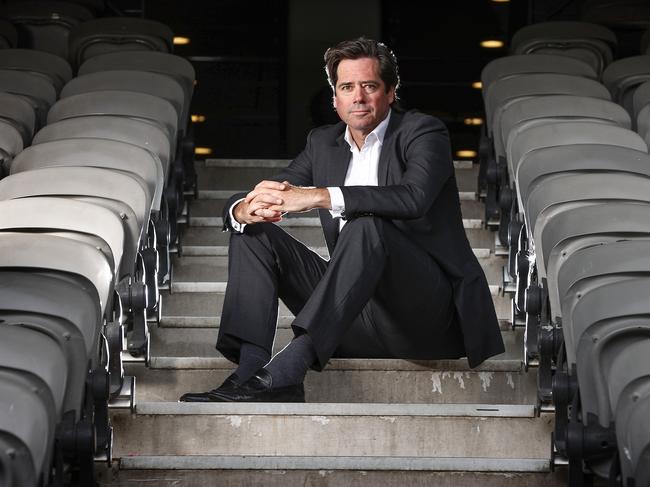Crawley Files: Brad Fittler in denial over his Nicho Hynes treatment
Brad Fittler is living in denial if he thinks criticism of his appalling treatment of Nicho Hynes is a media agenda, writes Paul Crawley.

NRL
Don't miss out on the headlines from NRL. Followed categories will be added to My News.
Brad Fittler is living in denial if he thinks criticism of his appalling treatment of reigning Dally M medalist Nicho Hynes is a media agenda to drive a wedge between him and the Sharks star playmaker.
Fittler is obviously so confused or oblivious to what is happening in the real world if he thinks it was okay to hang Hynes out to dry after playing just 10 minutes out of position in the centres for Origin I, and then snubbing him for the rest of the Origin series.
Yet there isn’t a rugby league fan I have spoken to in recent weeks that thinks Fittler did the right thing by Hynes who is one of the NRL’s genuine nice guys.

And the fact the NSW coach has also now revealed that he has gone to the extreme of searching up stories mentioning him and other previously snubbed players to justify why he thinks there is a media agenda against him just goes to the heart of why Fittler can’t possibly be reinstated as Blues coach next year, regardless of the result in Wednesday night’s dead rubber in Sydney.
Can you imagine Craig Bellamy taking time out of his preparations to Google search criticism of the Melbourne Storm over the years, and then coming out and publicly admitting to it just takes it to the next level?
It is so bloody ridiculous it is not even funny.
At least Hynes now has the chance to just focus on what he does so well for the Sharks when they take on Wests Tigers on Thursday night and not worry about Freddy’s silly mind games.

NRL’S LAST CHANCE TO RELOCATE STRUGGLING SYDNEY CLUB
While the expansion versus relocation debate has been going on since before Super League, the NRL continues to be left behind by AFL in the race to become a truly national competition.
But the reason the debate needs to start again right now is because all NRL club licenses expire on October 31 this year.
So if there is ever going to be a decision made to potentially move any of the existing nine Sydney-based clubs to assist further expansion, it must be done before the next license deal.
Otherwise there might not be another chance to even argue this for at least the next 40 or 50 years, or perhaps ever longer unless clubs are prepared to shift on their own terms.
Expansion versus relocation
You watch the constant struggles of Wests Tigers, the Dragons and Bulldogs, not just last weekend but year after year, and you shake your head at how those clubs can be so consistently bad when other Sydney based teams like Rabbitohs, Panthers and Roosters are so consistently successful.
Then in the next breath someone brings up expansion, and potentially creating new teams in places like Perth, PNG, another out of Queensland or perhaps even New Zealand.
But the question that must surely follow is if further expansion doesn’t come with at least one, or possibly two, Sydney teams biting the bullet and relocating, how in the hell is the game going to have enough elite talent to go around?

Sure, the Dolphins have shown this year how the new kid on the block doesn’t necessarily have to be the weakest link.
But there is just no denying how much one extra team has also become a further drain on the player talent pool.
And it could be even worse if the next team comes from an underdeveloped rugby league state like Perth.
You just need to look at the amount of born and bred Victorians who have emerged in the 25 years of the Melbourne Storm’s existence to understand how tough it can be developing elite talent in previously untested markets.
So moving into a new market will certainly not guarantee more NRL quality players, or at least not enough to detract further from the competition as we know it.

How new licenses will work
What the clubs are hoping to get moving forward is what is called a perpetual license.
If approved, it would mean they would remain indefinitely, so long as they hold up their end of the deal and don’t go broke, or do something so horrifically wrong that they lose their legal rights.
Of course, KPIs would come with any deal relating to ongoing governance and financial stability.
But there is little chance any club in this day and age would ever go under financially regardless of how they perform on the field, with the $19 million in annual funding they currently receive.
But just because revenue coming from TV broadcast rights is propping clubs up to the tune of $5 million-a-season above what they currently pay in player salaries, does it make it right that they should be beyond exemption for relocation if it is for the betterment of the game’s continued growth on a national front?
Meanwhile the AFL will field teams in every state barring the Northern Territory when a side from Tasmania enters in 2028.
But how can the NRL call itself a national competition without at least having a team in Perth, given we currently play in three states with one team in New Zealand?

Clubs want certainty
The reason the NRL club licenses are up for negotiation now is because they have been sitting on the backbench since 2017, when John Grant was still ARL Commission chairman.
In recent years the delays have been understandable due to Covid followed by the drawn out negotiations over the players’ collective bargaining agreement, which is still not resolved.
But while Andrew Abdo has told clubs that he wants to get the CBA done before he sits down for the game’s next soap opera, the expectation is that clubs will be given a one-year extension until they work out a deal going forward.

But make no mistake, the clubs are desperate to get this deal done so they can at least have some certainty surrounding their own futures.
And what clubs want is a guarantee that they will remain in the NRL for the long haul _ on the same ground they stand today.
Creating a truly national game
If the NRL was looking at a map of Australia to draw up a new 18-team national competition today, the game couldn’t seriously justify continuing to have nine Sydney-based teams.
But the reality is there is no chance any of the existing Sydney clubs putting up their hands to move if they are not forced to do so.
And their fans could rightfully argue expansion should not be at the expense of any one of the existing clubs that bring with them so much history, as well as a stake in the current rugby league heartlands.
No one ever complains about having too many professional football teams in London.
But then again England has a population of 55 million, whereas we have 25 million that covers a hell of a lot more territory, and with the AFL as the main competition.

Even in the United States there are only 32 NFL teams with a population of 330 million, where owners are more than prepared to move to new markets if the financial incentives are big enough.
What you can be certain of here is if an NRL club was ever forced to relocate the fans of that club would go absolutely berko.
Just think back to what happened when Souths were kicked out and George Piggins led the march to the Sydney Town Hall.
AFL boss Gill McLachlan spoke at an NRL chief executives’ conference back in 2019 about the issue of expansion versus relocation and what their game had gone through.
McLachlan was asked about the money spent on GWS and the Gold Coast Suns, and would he do it differently if the AFL had its time over.
McLachlan conceded it would have been cheaper and better for the competition to relocate teams.

But the AFL wasn’t willing to pay the transactional costs, while going through the torture for several years from outraged fans.
Which is also why that is the most likely conclusion the NRL will ultimately come to.
In a perfect world, it’s as obvious as the nose on your face that nine teams in Sydney are too many.
But we’ve been down this road before during Super League, and you can’t see it ever happening again. No matter how much sense it might make.
More Coverage
Originally published as Crawley Files: Brad Fittler in denial over his Nicho Hynes treatment





